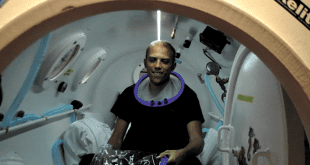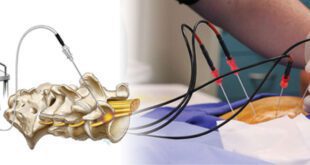Individuals with peripheral vascular disease (PVD) have blood flow disruptions usually in the feet and legs, but it can also occur in the brain, arms, and heart. When the blood vessels are narrowed or damaged, the blood flow becomes obstructed, and other complications can coincide.
Individuals with arterial disease due to atherosclerosis (plaque buildup in the arteries) often have PVD. Other blood vessel conditions like DVT’s (Deep Vein Thrombosis) varicose veins, pulmonary embolisms, and venous insufficiency are related to PVD.
Various forms of venous issues affect 25 million Americans. Their legs are swollen, achy and they have a heavy sensation. When our veins are working correctly, they pump blood back to the heart. Valves in the veins are made to open and close in one direction if these valves or the wall of the veins are damaged, the blood is unable to work against gravity, and the result is a pooling of the blood in our legs. This pooling is called stasis and can present significant risks to our health.
PVD Risk Factors
• Over 50 years old
• Diabetes
• Family history
• Heart disease
• High blood cholesterol
• High blood pressure
• Hormonal imbalance
• Overweight
• Sedentary Lifestyle
• Smoking
Because the veins and arteries balance each other out, when a person experiences chronic symptoms, it’s critical to see a physician. If the veins are damaged, it’s not unusual that the arteries are not pumping blood efficiently either. PVD or venous issues must be treated to prevent further damage to your circulatory system and your overall health.
Both chronic and acute symptoms could be a sign or can lead to a DVT (deep vein thrombosis). DVTs are life-threatening and should be treated immediately. Deep vein thrombosis is a blood clot in the veins that are formed deep in within the legs. Vascular malformations, pelvic tumors or sitting for long periods of time are some of the risk factors that go along with DVTs.
Every year, over 2 million people are affected by deep vein thrombosis, and sadly over 200,000 of these cases end in death. These are grim statistics since the treatment is minimal and so readily available to patients. It’s unfortunate that there still seems to be more of a reactive process, than a proactive plan. Speaking to your physician is vital if you or a loved one have any of the venous symptoms or risk factors.
PVD Symptoms
• Claudication (leg and calf pain while walking)
• Weak pulse on ankle or foot
• Hair loss on legs and feet
• Leg pain while standing or sitting, which subsides
after resting for an
• extended period of time
• A sensation of tightness & burning may occur in
the leg or foot
• Swelling of the calves, which dissipates after
elevation
• Dark veins
• Dry, itchy skin
• Ulcers can occur near the ankle and are often
painless, but may have a dark rim
• Shortness of breath
PVD Treatment
The treatment for PVD depends on your overall health, your severity of the disease and underlying medical disorders. These methods of treatment can range from diet and exercise protocols, medications, angioplasty, stents or vascular surgery to name a few. If PVD is left untreated, there is a significant risk of losing a limb to amputation, heart attack, and stroke.
The Department of Cardiology & HeartCare at Florida Medical Clinic has an experienced team of cardiologists to provide comprehensive outpatient diagnostic services in multiple convenient locations. Your heart can’t wait, call us today.
Specialty Cardiology Services & Conditions
• Coronary Artery Disease
• High-Risk Coronary Interventions
• Peripheral Vascular Disease
• Follow-up of angioplasty, stents and bypass surgery
• Arrhythmia & Rhythm Disorders
• Pacemaker & ICD Implantation and Clinic
• Congestive Heart Failure Clinic
• Pulmonary Hypertension
• Structural Heart Disease
• Cholesterol and lipid disorders
• Adult congenital heart disease
• Anticoagulation Clinic
• Abdominal Aortic Aneurysm
Imran Ismail, DO, Board Certified in Cardiology & Interventional Cardiology
Dr. Ismail is married with two sons. He enjoys coaching youth sports, organizing and playing league basketball, restoring his 1974 corvette, outdoor activities, and international humanitarian relief work. He is fluent in English, Urdu, and American Sign Language and familiar with Spanish, Hindi, Punjabi and Arabic.
Florida Medical Clinic, A Leader in Comprehensive Health Care
At Florida Medical Clinic, your health and well-being is their specialty. Their team of compassionate, experienced physicians offers a comprehensive range of healthcare services. By specializing in everything from family and internal medicine services to cardiology, gastroenterology, sports medicine, plastic surgery, and beyond, all within a single, clinically integrated network, their team streamlines every aspect of your healthcare. There’s only one name you’ll need to remember for all of your medical needs: Florida Medical Clinic.
Their team of physicians treats patients of all ages, from infants to seniors. In addition to emphasizing preventive care to help their patients stay healthy, their primary care services include physical exams, urgent care appointments for non-life-threatening injuries and illnesses, cancer screenings, minor surgical procedures, routine gynecology and dermatology services, and ongoing management of chronic conditions such as autoimmune disorders, diabetes, and osteoporosis.
To find out more or to schedule your appointment, please contact them today.
Cardiology/HeartCare
Imran Ismail, D.O.
38135 Market Square
Zephyrhills, Florida 33542
813.788.5575
Check Also
How Nancy Went from Excruciating Neck Pain All Day, Everyday….to No Pain!
Millions of people are suffering from chronic pain. Some resort to surgery and some may …
 Central Florida Health and Wellness Magazine Health and Wellness Articles of the Villages
Central Florida Health and Wellness Magazine Health and Wellness Articles of the Villages



